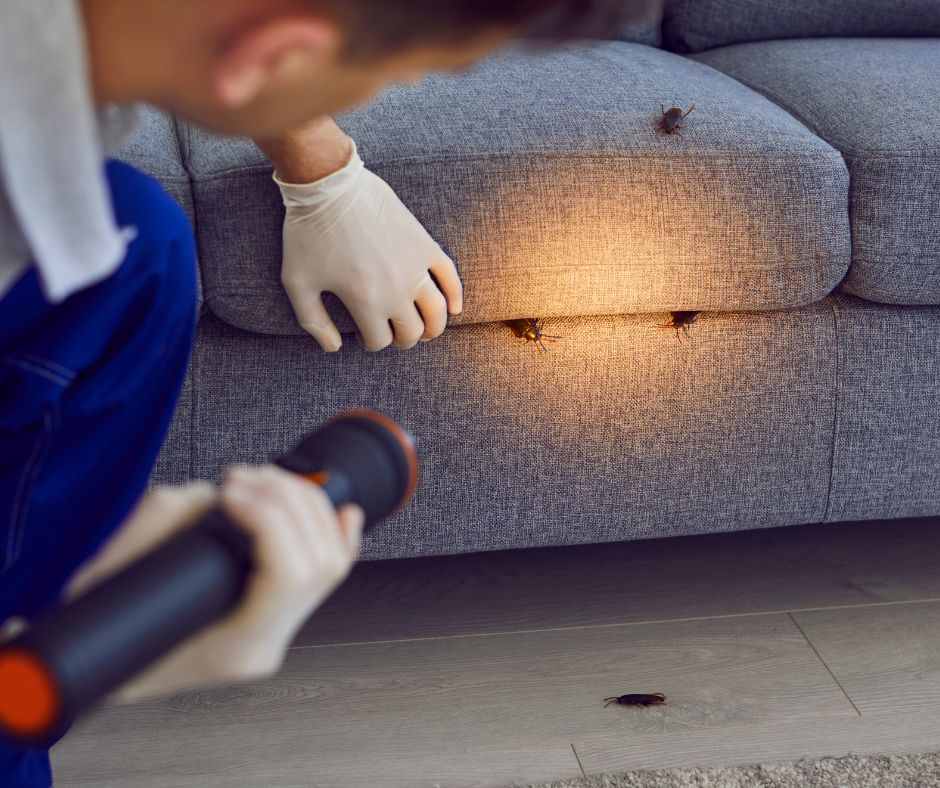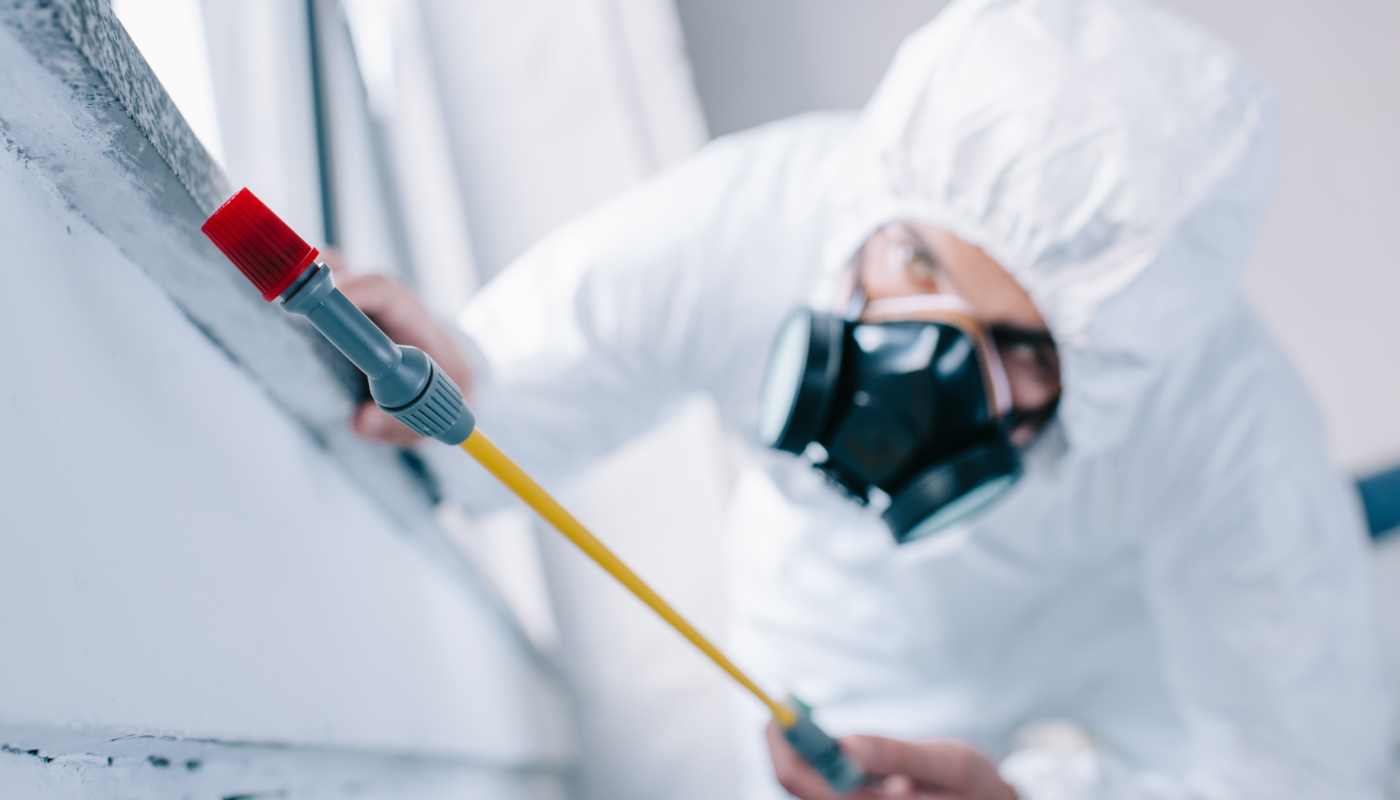Trusted Rodent Control Port Charlotte to Prevent Damage to Your Property
Wiki Article
Find Out About the most up to date Breakthroughs in Pest Control and Exactly How to Carry Out Reliable Therapy Solutions
In recent years, the area of insect control has seen substantial advancements, driven by the requirement for sustainable and effective treatment services. Innovative methods such as Integrated Bug Administration (IPM) integrate eco-friendly practices with advanced technology, enhancing both efficacy and environmental responsibility.Eco-Friendly Parasite Control Options
In current years, the demand for environmentally friendly insect control choices has surged as organizations and home owners alike seek sustainable choices to standard chemical therapies. This change is driven by expanding ecological recognition and a wish to decrease the wellness threats related to artificial pesticides.

Environmentally friendly parasite control approaches encompass a variety of methods that prioritize using natural materials and techniques. Integrated Bug Administration (IPM) is one such approach, incorporating biological, cultural, and mechanical techniques to take care of pest populations while decreasing reliance on chemicals (Wildlife removal services). This alternative technique highlights avoidance with environment adjustment and the intro of natural predators, consequently cultivating a balanced environment
An additional preferred alternative is the usage of botanical pesticides originated from plants, which have a tendency to be much less harmful to non-target organisms. Products like neem oil and diatomaceous earth have acquired traction for their efficiency in regulating parasites while posing minimal dangers to human wellness and the setting.
Furthermore, exemption strategies, such as sealing entrance factors and preserving sanitation, play a critical role in environmentally friendly pest monitoring. By embracing these sustainable practices, people and services can effectively take care of parasites while promoting a healthier earth for future generations.
Smart Innovation in Insect Management
Development is improving the landscape of parasite administration, with smart modern technology arising as an essential force in enhancing performance and efficiency - Wildlife removal services. The combination of Internet of Things (IoT) devices, expert system (AI), and information analytics is changing exactly how parasite control experts come close to invasions
Smart catches geared up with sensing units can identify insect task in real-time, sending instant alerts to operators. This permits timely actions, minimizing damages and reducing the requirement for considerable treatments. Additionally, AI formulas examine historical information to forecast pest habits, making it possible for proactive interventions based upon ecological conditions and invasion patterns.
Drones and computerized vehicles are also playing a considerable role in insect monitoring, offering airborne analyses of large locations, identifying hotspots, and also distributing targeted therapies. These modern technologies not only streamline procedures however additionally improve security by limiting human exposure to possibly dangerous chemicals.
Additionally, mobile applications empower customers to keep track of parasite activity and gain access to expert recommendations, cultivating a collaborative method to pest administration. Overall, the adoption of wise technology is setting a brand-new criterion in parasite control, highlighting data-driven decisions and sustainable practices that ultimately benefit both professionals and homeowners alike.
Integrated Pest Management Strategies
Integrated Insect Management (IPM) utilizes an all natural strategy to pest control, integrating numerous strategies to efficiently handle parasite populations while lessening risks to human health and wellness and the atmosphere. IPM focuses on recognizing the pest life cycle, their natural enemies, and the environment in which they grow.Among the fundamental components of IPM is monitoring pest populaces through regular evaluations and data collection. This permits the recognition of bug limits, establishing when intervention is required. Cultural techniques, such as plant environment, turning, and cleanliness adjustment, are crucial in minimizing insect frequency and promoting plant health and wellness.
Mechanical controls, including obstacles and catches, are also essential in IPM. These methods can literally remove or prevent pests without the usage of chemicals. When necessary, the sensible application of chemical controls is used, focusing on targeted treatments that decrease environmental effect.
Education and collaboration amongst stakeholders, including farmers, parasite control specialists, and the community, are crucial for the effective execution of IPM techniques. By focusing on sustainable techniques, IPM not just addresses pest issues yet likewise fosters a much healthier community.
Biological Control Methods
Many biological control techniques are increasingly identified for their performance in taking care of pest populations while promoting ecological balance. These techniques harness natural predators, parasites, and microorganisms to minimize pest numbers without counting on synthetic chemicals. The introduction of ladybugs can efficiently manage aphid populaces, while nematodes target soil-dwelling pest larvae.In addition, using microbial pesticides, such as Bacillus thuringiensis (Bt), gives an ecologically friendly choice for handling caterpillar parasites. These products specifically target pest varieties, minimizing harm to beneficial insects and pollinators. Moreover, preservation organic control highlights improving habitats for natural opponents, such as birds and advantageous insects, therefore motivating their visibility in farming systems.
Research study continues to disclose ingenious techniques within this field, such as using pheromones to disrupt pest breeding patterns or the advancement of biocontrol agents via genetic engineering. Implementing these approaches can cause sustainable pest monitoring techniques that minimize the dependence on chemical interventions, ultimately fostering much healthier ecosystems. As awareness of these techniques expands, they are coming to be indispensable parts of incorporated bug monitoring (IPM) methods, providing an equilibrium in between efficient bug control and environmental stewardship.
DIY Parasite Control Solutions
As house owners look for efficient methods to tackle parasite problems, DIY bug control services have actually gained appeal for their access and cost-effectiveness. These approaches encourage individuals to deal with problems using easily available materials and methods, often without the requirement for expert treatment.
Additionally, maintaining correct hygiene and regular examinations can protect against bug access and nesting (Wildlife removal services). Easy practices, such as securing cracks, getting rid of food sources, and decluttering, can considerably diminish parasite populations. Catches, both homemade and readily available, can likewise supply reliable solutions for monitoring and managing certain parasites like insects or rodents

Verdict
The assimilation of environment-friendly pest control options, clever modern technology, and innovative administration approaches presents an extensive method to efficient insect administration. By accepting Integrated Insect Management (IPM) and utilizing organic control methods, alongside Do it yourself remedies, lasting and accountable parasite control can be accomplished.Environment-friendly insect control methods incorporate a variety of methods that prioritize the use of natural compounds and practices. Integrated Insect Administration (IPM) Pest control services is one such strategy, combining biological, cultural, and mechanical methods to manage pest populations while reducing reliance on chemicals. As recognition of these strategies expands, they are ending up being indispensable parts of incorporated insect monitoring (IPM) strategies, offering an equilibrium between reliable insect control and ecological stewardship.
The integration of eco-friendly insect control alternatives, smart modern technology, and innovative administration strategies provides a thorough method to effective bug monitoring. By embracing Integrated Bug Management (IPM) and utilizing biological control approaches, alongside DIY options, sustainable and accountable parasite control can be achieved.
Report this wiki page